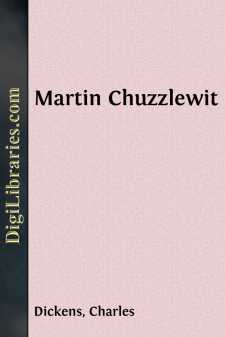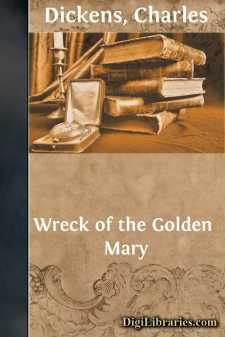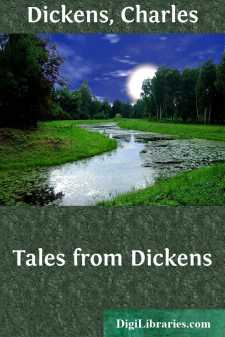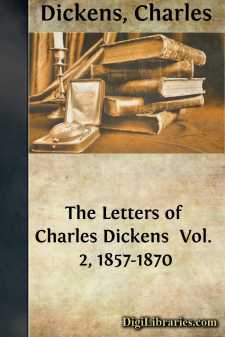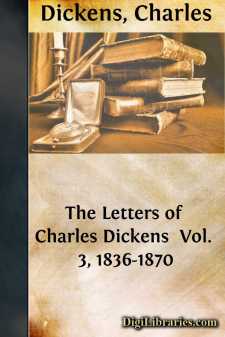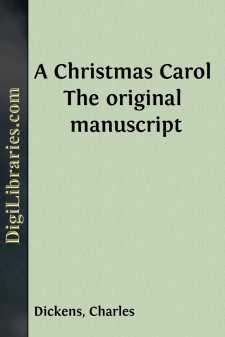Categories
- Antiques & Collectibles 13
- Architecture 36
- Art 48
- Bibles 22
- Biography & Autobiography 815
- Body, Mind & Spirit 144
- Business & Economics 28
- Children's Books 18
- Children's Fiction 14
- Computers 4
- Cooking 94
- Crafts & Hobbies 4
- Drama 346
- Education 58
- Family & Relationships 59
- Fiction 11833
- Games 19
- Gardening 17
- Health & Fitness 34
- History 1378
- House & Home 1
- Humor 147
- Juvenile Fiction 1873
- Juvenile Nonfiction 202
- Language Arts & Disciplines 89
- Law 16
- Literary Collections 686
- Literary Criticism 179
- Mathematics 13
- Medical 41
- Music 40
- Nature 179
- Non-Classifiable 1768
- Performing Arts 7
- Periodicals 1453
- Philosophy 65
- Photography 2
- Poetry 896
- Political Science 203
- Psychology 44
- Reference 154
- Religion 515
- Science 126
- Self-Help 85
- Social Science 82
- Sports & Recreation 34
- Study Aids 3
- Technology & Engineering 59
- Transportation 23
- Travel 463
- True Crime 29
Sort by:
by:
Charles Dickens
CHAPTER I—PICKING UP SOOT AND CINDERS “And why Tom Tiddler’s ground?” said the Traveller. “Because he scatters halfpence to Tramps and such-like,” returned the Landlord, “and of course they pick ’em up. And this being done on his own land (which it is his own land, you observe, and were his family’s before him), why it is but regarding the halfpence as gold and silver, and turning...
more...
by:
Charles Dickens
CHAPTER ONE INTRODUCTORY, CONCERNING THE PEDIGREE OF THE CHUZZLEWIT FAMILY As no lady or gentleman, with any claims to polite breeding, can possibly sympathize with the Chuzzlewit Family without being first assured of the extreme antiquity of the race, it is a great satisfaction to know that it undoubtedly descended in a direct line from Adam and Eve; and was, in the very earliest times, closely...
more...
by:
Charles Dickens
THE WRECK I was apprenticed to the Sea when I was twelve years old, and I have encountered a great deal of rough weather, both literal and metaphorical. It has always been my opinion since I first possessed such a thing as an opinion, that the man who knows only one subject is next tiresome to the man who knows no subject. Therefore, in the course of my life I have taught myself whatever I could,...
more...
by:
Charles Dickens
CHARLES DICKENS Charles John Huffham Dickens, the master story-teller, was born in Landport, England, February 7, 1812. His father was a clerk in one of the offices of the Navy, and he was one of eight children. When he was four years old, his father moved to the town of Chatham, near the old city of Rochester. Round about are chalk hills, green lanes, forests and marshes, and amid such scenes the...
more...
by:
Charles Dickens
CHAPTER 1. Dombey and Son Dombey sat in the corner of the darkened room in the great arm-chair by the bedside, and Son lay tucked up warm in a little basket bedstead, carefully disposed on a low settee immediately in front of the fire and close to it, as if his constitution were analogous to that of a muffin, and it was essential to toast him brown while he was very new. Dombey was about...
more...
by:
Charles Dickens
A POOR MAN'S TALE OF A PATENT I AM not used to writing for print. What working-man, that never labours less (some Mondays, and Christmas Time and Easter Time excepted) than twelve or fourteen hours a day, is? But I have been asked to put down, plain, what I have got to say; and so I take pen-and-ink, and do it to the best of my power, hoping defects will find excuse. I was born nigh London, but...
more...
by:
Charles Dickens
1857. NARRATIVE.Thiswas a very full year in many ways. In February, Charles Dickens obtained possession of Gad's Hill, and was able to turn workmen into it. In April he stayed, with his wife and sister-in-law, for a week or two at Wate's Hotel, Gravesend, to be at hand to superintend the beginning of his alterations of the house, and from thence we give a letter to Lord Carlisle. He removed...
more...
by:
Charles Dickens
1836 to 1839.Mr. John Hullah. Furnival's Inn,Sunday Evening (1836)(?).My dear Hullah,Have you seen The Examiner? It is rather depreciatory of the opera; but, like all inveterate critiques against Braham, so well done that I cannot help laughing at it, for the life and soul of me. I have seen The Sunday Times, The Dispatch, and The Satirist, all of which blow their critic trumpets against unhappy...
more...
by:
Charles Dickens
MARLEY'S GHOST. Marley was dead: to begin with. There is no doubt whatever about that. The register of his burial was signed by the clergyman, the clerk, the undertaker, and the chief mourner. Scrooge signed it: and Scrooge's name was good upon 'Change, for anything he chose to put his hand to. Old Marley was as dead as a door-nail. Mind! I don't mean to say that I know, of my own...
more...
by:
Charles Dickens
CHAPTER I—MRS. LIRRIPER RELATES HOW SHE WENT ON, AND WENT OVER Ah! It’s pleasant to drop into my own easy-chair my dear though a little palpitating what with trotting up-stairs and what with trotting down, and why kitchen stairs should all be corner stairs is for the builders to justify though I do not think they fully understand their trade and never did, else why the sameness and why not more...
more...



